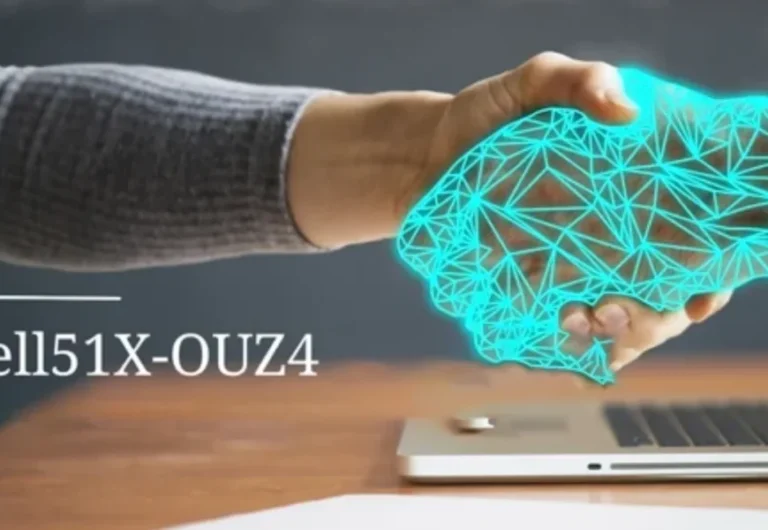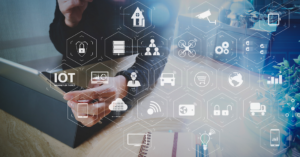Introduction to AI and its history

Artificial Intelligence, or AI, has transformed from a futuristic concept into an integral part of our daily lives. Its roots can be traced back to the mid-20th century when pioneers began dreaming about machines that could think and learn like humans. Fast forward to today, and those dreams are becoming reality at lightning speed.
AI is no longer confined to science fiction novels or high-tech labs; it’s reshaping industries, enhancing personal experiences, and redefining what we consider possible. From virtual assistants managing our schedules to advanced algorithms predicting health outcomes, the journey of AI continues to unfold in fascinating ways. As we explore the top seven ways AI is revolutionizing our world, prepare to discover just how deeply this technology impacts everything around us.
Advancements in AI technology

Artificial Intelligence has seen remarkable advancements in recent years. Machine learning algorithms have become more sophisticated, enabling systems to analyze vast amounts of data with impressive speed and accuracy.
Natural language processing (NLP) is another area where shines. It allows machines to understand and generate human language, transforming how we interact with technology. Chatbots are now commonplace, offering instant support across various sectors.
Computer vision technologies have also advanced significantly. These systems can identify objects and recognize patterns in images or videos. This capability opens doors for applications ranging from security surveillance to autonomous vehicles.
Robotics integration into is revolutionizing manufacturing processes too. Robots equipped with smart software can adapt to changing conditions on the factory floor, improving efficiency and reducing waste.
Every day brings fresh breakthroughs, driving innovation further than anyone could have imagined just a decade ago. The pace of progress seems unstoppable as researchers push boundaries in this dynamic field.
Impact on various industries such as healthcare, finance, and transportation

AI is making waves across multiple industries, transforming how we operate and make decisions. In healthcare, it enhances diagnostics with machine learning algorithms that analyze medical images for early disease detection. This technology supports doctors in making more informed choices.
Finance has also felt the impact. Algorithms assess risk profiles faster than humans, leading to smarter investment strategies and fraud detection systems that protect consumers from cyber threats. These innovations save time and money while boosting security.
Transportation is experiencing a revolution too. Autonomous vehicles are being tested on roads worldwide, promising safer travel experiences. Traffic management systems use to optimize flow, reducing congestion in urban areas.
Each of these sectors showcases how drives efficiency and innovation, paving the way for advanced solutions tailored to modern needs. The ripple effects are profound and far-reaching as businesses embrace this transformative technology.
Integration of AI in everyday life

AI has seamlessly woven itself into the fabric of our daily routines. From smart assistants like Siri and Alexa to personalized recommendations on streaming platforms, it enhances how we consume information.
Shopping has transformed as well. analyzes our preferences, suggesting products tailored just for us. This level of personalization creates a more enjoyable experience.
In transportation, apps like Google Maps use to provide real-time traffic updates and optimal routes. Commuting feels less stressful when technology predicts delays and suggests alternatives.
Even in home management, smart thermostats learn our habits, adjusting temperatures automatically for comfort and energy efficiency.
As we interact with these technologies, they become almost invisible yet incredibly impactful—shaping how we connect with the world around us every day.
Ethical concerns surrounding AI development

The rapid advancement of AI technology raises significant ethical concerns. One major issue is bias in algorithms. If not carefully designed, systems can perpetuate existing prejudices found in the data they are trained on.
Privacy also comes under scrutiny. As collects and analyzes vast amounts of personal information, questions about consent and data security emerge. Individuals may unknowingly surrender their privacy for convenience.
Job displacement poses another challenge. Automation could replace many traditional roles, leading to economic uncertainty for millions. The shift requires thoughtful planning to ensure a fair transition for affected workers.
Additionally, accountability becomes complex with autonomous systems making decisions without human oversight. Determining who is responsible when things go wrong can be problematic.
There’s concern over the potential misuse of technologies in surveillance or warfare, emphasizing the need for strict regulations to safeguard society against harmful applications.
Future possibilities and potential drawbacks

The future of holds incredible possibilities. We can anticipate breakthroughs in personalized medicine, where algorithms predict health issues before they arise. Imagine smart cities that optimize traffic flow and reduce energy consumption through real-time data analysis.
However, this rapid evolution isn’t without its pitfalls. As machines learn more about us, privacy concerns escalate. The balance between convenience and surveillance becomes increasingly tenuous.
Moreover, the potential for job displacement looms large. While may enhance productivity, it could also render certain roles obsolete, creating a significant societal shift that needs addressing.
There’s also the risk of bias embedded in algorithms. Without careful oversight, existing prejudices can be amplified rather than mitigated by these technologies.
Navigating these challenges will require collaboration among technologists, ethicists, and policymakers to ensure that advancements benefit society as a whole while mitigating unintended consequences.
Conclusion: The ongoing evolution of AI and its impact on society
The journey of continues to unfold in fascinating ways. As technology advances, we see its transformative effects on our daily lives and industries. From healthcare’s enhanced diagnostics to finance’s predictive analytics, the influence of is undeniable.
As it becomes more integrated into everything from smart homes to autonomous vehicles, society must navigate this new landscape carefully. The convenience brought by comes with responsibilities and ethical considerations that cannot be overlooked.
Looking ahead, the possibilities seem limitless—yet they carry potential drawbacks as well. Ensuring that develops responsibly will shape how future generations interact with this powerful tool.
The evolution of not only highlights human ingenuity but also challenges us to rethink our relationship with technology and each other. As we embrace these changes, a balance between innovation and ethics will be crucial for sustainable progress.






